How many times have you posted an unflattering photo of yourself on social media? Now think, how many times have you posted a picture next to a pool or on vacation?
If you were to look at your last 10 social media posts, do you think they accurately depict your everyday lifestyle? If they do, well then you’re in the minority and you probably get the point we’re trying to make. Social Media is, in general, not an accurate depiction of reality.
But how social media distorts our reality is a lot more complex than people posting too many pool selfies.
Social media companies have established themselves as middle men in control of what content we consume.
In this article we’ll explore the science, look to experts, to better understand social media vs. reality and how social media companies (and social media in general) distort our perceptions of reality.
Here’s what we found out, what we concluded, and why.
The Mechanics of Distortion: How Social Media Algorithms Shape Our Perceptions
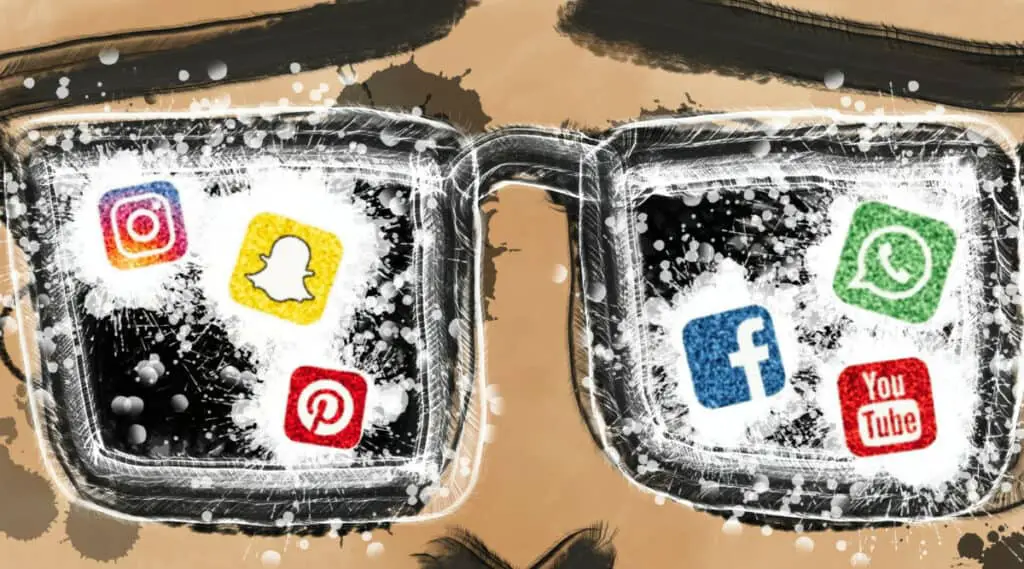
The Power of Social Media Algorithms
Behind social media’s vibrant facade of likes, shares, and retweets lies a pulsating web of mathematical marvels churning out billions of dollars.
These enigmatic algorithms hold the power to captivate our attention, shape our opinions, and ignite revolutions. Unleashing a fractal of possibilities, they plunge us into an abyss of viral trends and interconnected communities, where ideas collide and echo through the labyrinth of cyberspace.
I became truly mesmerized by the scale and complexity of the dazzling realm of social media algorithms, where chaos dances harmoniously with control, and the extraordinary becomes the norm.
Social Media Algorithms Are In Charge of What We See
As we navigate through our digital lives, we are invariably subjected to the subtle, pervasive control of social media algorithms. Each action we take – scrolling, liking, sharing – further cements their influence over our digital reality.
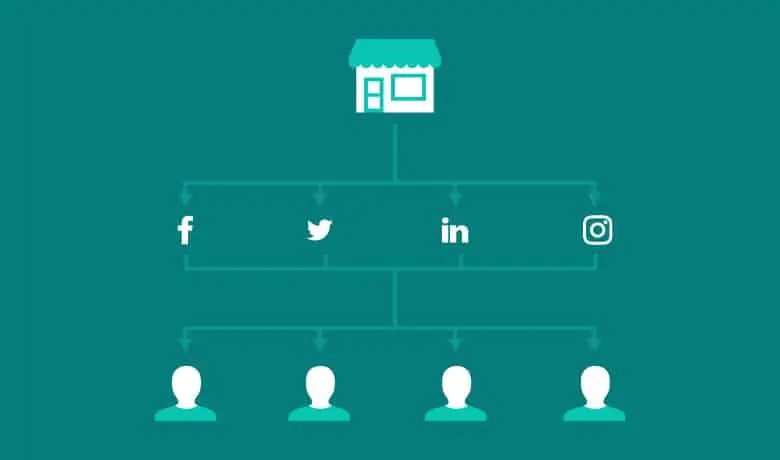
Acting as an unseen digital authority, these algorithms scrutinize our online behavior with a startling level of precision. Our conscious is analyzed and our preferences interpreted, all with the goal of delivering a customized online experience that suits the objectives of these enigmatic digital masters.
The power they hold over our perception is profound; they have the ability to amplify certain narratives while quietening others. From politics to culture, they shape our online discourse, subtly influencing the trends, ideologies, and movements that we encounter.
The Journal of High Technology Law at Suffolk University Law School deemed social media algorithms, a dangerous tool for internet platforms to promote information that is harmful and misleading.
Yet, the question remains: how do these platforms sidestep accountability for the turmoil they instigate? The answer is found in a piece of legislation called Section 230 of the Communications Decency Act of 1996.
This provision offers these platforms a legal safety net, allowing them to evade responsibility. It’s this protective armor that frees platforms from liability, permitting them to turn a blind eye to the chaos they help stir up.
In layman’s terms, Section 230 communicates, “Dear platforms, you’re off the hook for the absurdities your users propagate.” This is akin to providing carte blanche to a reckless party host, freeing them from the aftermath of the turmoil within their premises.
This legislative cover allows platforms to unleash their algorithmic predators, preying upon a platter of detrimental content. Misinformation, hate speech, and propaganda are allowed to thrive unchallenged, gradually contaminating the core of our digital landscape.
Optimizing Individual Content for Maximum Engagement
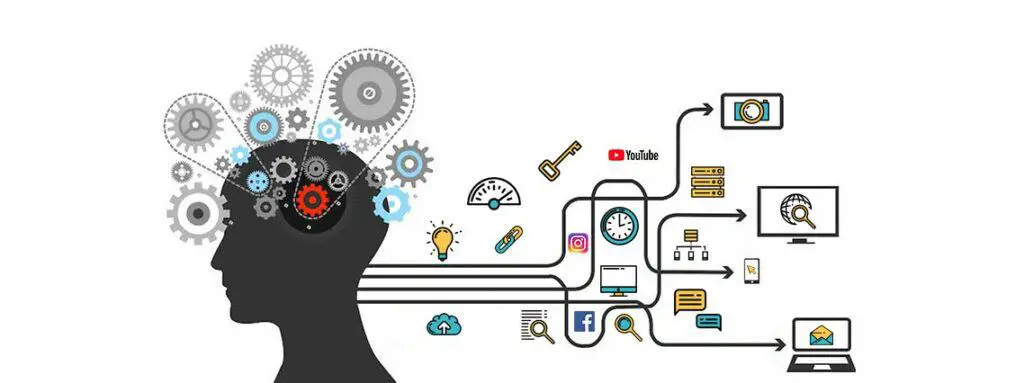
In their unyielding quest for engagement, these algorithmic manipulators refine content with a devious slant. They hold the reins of our online reality, fostering a seedy underbelly that promotes sensation, controversy, and addictive tendencies.
We’re ensnared by customized content, kindling our yearning for immediate satisfaction and binding us to a perpetual cycle of scrolling, absorbing, and hungering for more.
Behind the glossy veneer of personalized feeds, there lurks a murky domain where our focus is traded, our privacy a negotiable asset, and our mental health a disregarded triviality.
“Engagement Optimization Algorithm” Simplified and Explained
The Engagement Optimization Algorithm employed by social media platforms tailors’ content to maximize user engagement.
It analyzes user behavior to present personalized content that garners likes, comments, and shares. However, having an algorithm programmed to maximize user engagement creates significant dangers.
Optimizing for engagement perpetuates echo chambers by prioritizing content that aligns with users’ existing beliefs, fosters the spread of misinformation, fuels addictive behaviors, creates filter bubbles that limit exposure to diverse perspectives, and raises privacy concerns through extensive data collection.
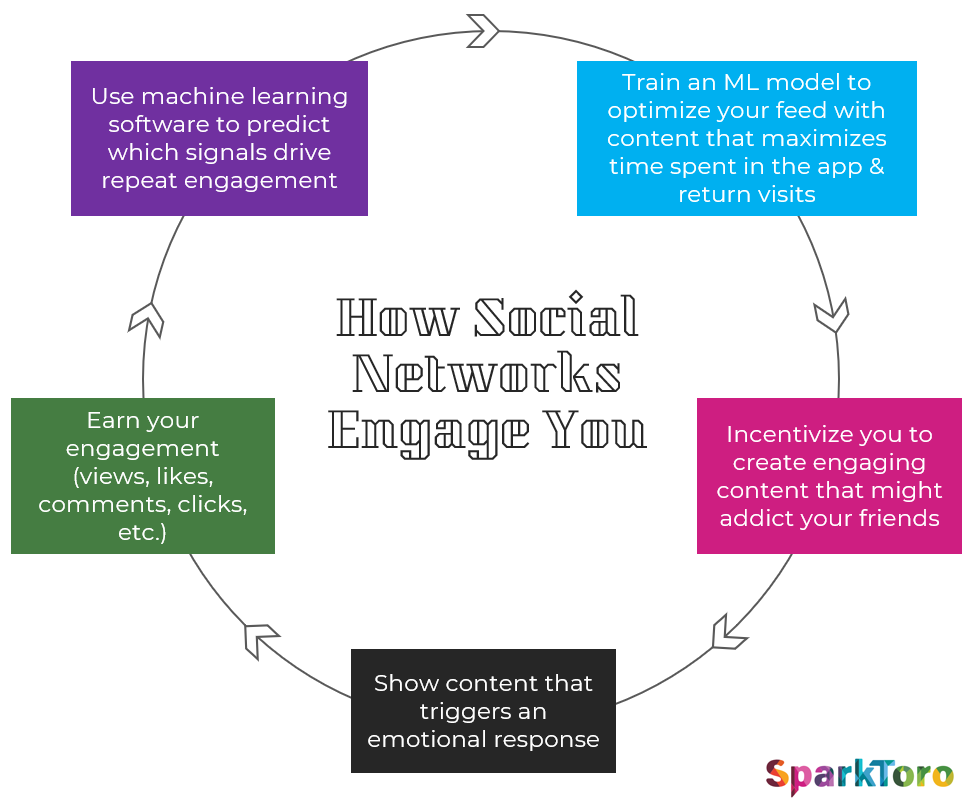
This algorithmic approach can, erode critical thinking, polarize societies, compromise user privacy, and many physicists from one of Europe’s most notable science and technology institutions Ecole Polytechnique Federale de Lausanne believe social media can even distort our reality.
How Social Media Algorithms Optimize For Engagement
1. Distorting The Wealthy Few
Social media algorithms have the power to distort and perpetuate wealth disparities, favoring the already wealthy few.
These algorithms amplify the reach and visibility of content from influential individuals and brands, often driven by advertising revenue. As a result, affluent individuals and corporations gain further exposure, widening the gap between the rich and the rest.
This uneven distribution of attention and resources can limit opportunities for marginalized voices, perpetuate economic inequalities, and reinforce a system where the wealthy maintain their privileged status, while others struggle to break through the algorithmic barriers.
2. People Only Posting Their Best Side (or their worst)
The act of sharing carefully curated “best life” pictures on social media platforms can have detrimental effects on mental health. These posts often showcase idealized versions of people’s lives, presenting a distorted reality that appears flawless and enviable.
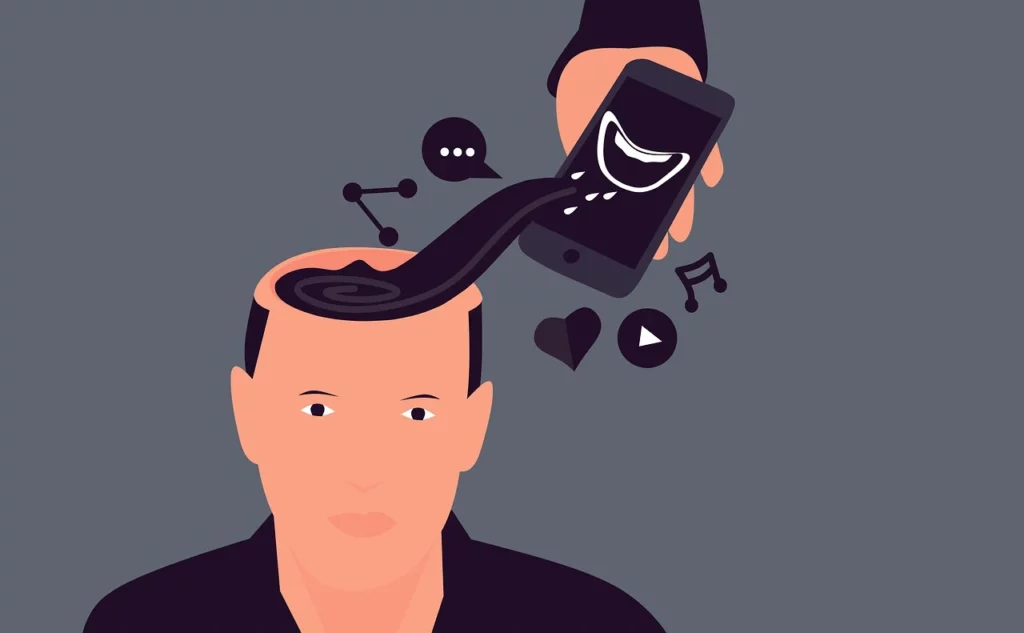
As a result, viewers may feel compelled to compare their own lives and achievements, leading to feelings of inadequacy, self-doubt, and diminished self-esteem.
The National Institutes of Health has been warning us about how the constant exposure to these highlight reels can create a negative impact on mental well-being, fostering unrealistic expectations and a persistent sense of dissatisfaction, especially in girls/women.
It is essential to cultivate awareness and promote authenticity in online interactions to mitigate the adverse effects of social media comparison.
3. The Click-Bait Headlines Distortion
A phenomenon prevalent in online media where headlines are deliberately crafted to be sensationalistic, exaggerated, or misleading in order to attract clicks and generate web traffic.
These eye-catching headlines often promise shocking revelations, irresistible secrets, or exaggerated claims to entice users to click on the associated article or link.
The distortion lies in the disconnect between the attention-grabbing headline and the actual substance of the content. This practice can mislead and deceive readers, leading to misinformation, shallow understanding of complex issues, and a degradation of journalistic integrity.
The primary goal is to maximize clicks and engagement, often at the expense of accuracy and responsible reporting.
4. The Extreme Emotion Distortion
Extreme emotion distortion is another phenomenon observed in online content, particularly on social media platforms, where information is exaggerated, sensationalized, or skewed towards extreme emotional responses.
Content creators may exploit this distortion by amplifying emotions such as anger, fear, or outrage to capture attention and generate engagement.
The extreme emotion distortion can hinder meaningful dialogue, perpetuate misinformation, and contribute to the spread of divisiveness and hostility in online communities.
This is all for the sake of clicks to generate money for a website.
5. Relationship Distortions
Social media algorithms can distort our relationships by highlighting selected interactions, fostering superficial connections based on popularity, amplifying confirmation bias, triggering comparison and envy, and reducing face-to-face interactions.
They prioritize content from certain individuals, potentially imbalancing our attention and interactions. The pursuit of social validation can overshadow genuine connections.
A medically reviewed article on PsychCentral brought forth the potential of how the curated nature of social media can lead to feelings of inadequacy and envy.
Excessive social media use can detract from real-world interactions, affecting the quality of relationships. Being aware and maintaining a balanced approach can help mitigate these distortions.
6. Bodies Image Distortion

Social media distorts body image by showcasing idealized portrayals, promoting unrealistic beauty standards, fostering negative comments and body shaming, and reinforcing specific body ideals through algorithms.
The American Psychological Association states that reducing social media use significantly improves body image in teens and young adults.
It is also important to cultivate a critical mindset, curate a diverse and inclusive online feed, limit exposure to triggering content, and prioritize self-acceptance and body positivity.
7. Social Media Bots
Social media bots, those digital marionettes lurking in the shadows, are the sinister pawns of manipulation and deception.
These automated creatures, programmed to mimic human behavior, infiltrate our online spaces, spreading misinformation, propaganda, and sowing discord with ruthless efficiency.
They masquerade as genuine users, flooding comment sections, amplifying extreme views, and distorting public opinion. With their relentless presence and ability to generate artificial trends, they undermine trust, stifle authentic conversations, and create an illusion of widespread support or opposition.
Beware the dangers they pose – UC Santa Barbra have highlighted Social Media bots as the cornerstone of fake news. These bot armies silently wage wars of influence, undermining the very fabric of our digital world.
8. The Bandwagon Effect:
Going with the Perceived Majority People Go Along With What They Think The Majority Believes
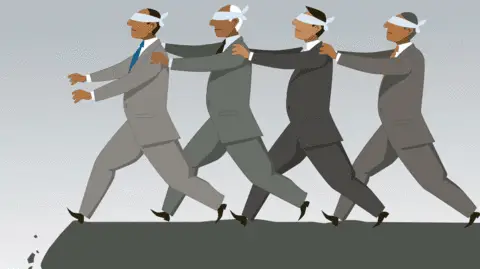
“The Bandwagon Effect” on social media refers to yet another phenomenon where people tend to conform to popular opinions or beliefs based on the perception of what the majority thinks.
In online environments, this effect is amplified as users witness a flood of posts, comments, and likes supporting a particular viewpoint.
The fear of being left out or the desire for social validation drives individuals to align themselves with the perceived majority, often without critically evaluating the merits of the argument.
As social psychologist Solomon Asch noted,
“A person is more likely to conform when they are unsure of a situation and when they are made to feel incompetent or insecure.”
| Social Media Algorithm Distortions | Explanation How It Manipulates You |
|---|---|
| Distorting The Wealthy Few | Social media algorithms favor content from influential individuals and brands, widening wealth disparities by furthering the reach of the affluent few, often marginalizing others. |
| People Only Posting Their Best (or Worst) Side | The sharing of idealized “highlight reels” can lead to feelings of inadequacy and diminished self-esteem. The National Institutes of Health warns of the negative mental health impact of constant exposure to these posts, especially for women. |
| The Click-Bait Headlines Distortion | Sensationalistic, exaggerated, or misleading headlines are crafted to attract clicks and web traffic, often at the expense of accuracy and responsible reporting. |
| The Extreme Emotion Distortion | Content is skewed towards extreme emotional responses to generate engagement. This hinders meaningful dialogue and can spread divisiveness and hostility. |
| Relationship Distortions | Algorithms highlight selected interactions, fostering superficial connections and affecting the quality of relationships. Excessive social media use can detract from real-world interactions. |
| Body Image Distortion | Idealized portrayals and unrealistic beauty standards foster negative body image. The American Psychological Association states that reduced social media use improves body image in teens and young adults. |
| Social Media Bots | Automated bots mimic human behavior, spreading misinformation and sowing discord. They undermine trust and stifle authentic conversations. |
| The Bandwagon Effect | People conform to popular opinions based on the perception of what the majority thinks. The fear of being left out or the desire for social validation drives individuals to align themselves with the perceived majority. |
The Psychological Impact: How Social Media Affects Our Perception
Social Media’s Effect on Our Self-Perception
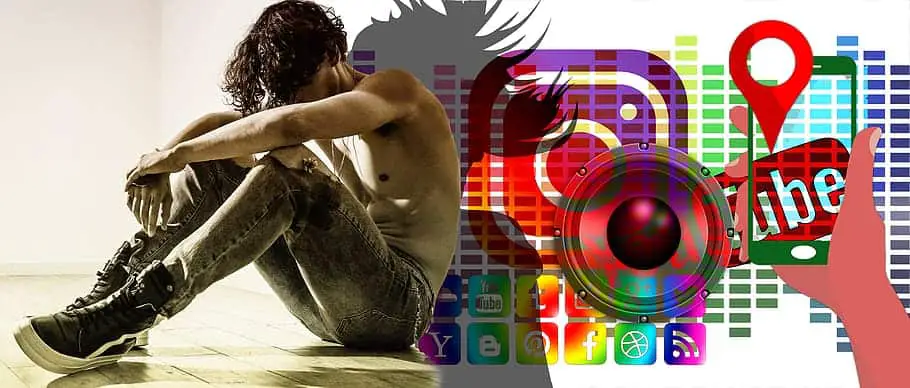
Social media exerts a profound influence on our self-perception, often luring us into comparing ourselves to an illusionary reality.
As psychologist Dr. Tara Well aptly states, “We compare our behind-the-scenes to everyone else’s highlight reels.”
On social platforms, individuals carefully curate and present their best moments, achievements, and appearances, creating an idealized facade.
Constant exposure to these carefully crafted narratives can lead to feelings of inadequacy, diminished self-esteem, and a distorted perception of our own lives.
It is crucial to remember that social media presents a curated version of reality and to prioritize self-compassion and authenticity in our self-perception.
Social Media’s Effect on Our Natural Feedback Loop
The feedback we receive through social media differs significantly from direct, in-person interactions.
Indirect Feedback Through Social Media
On social media, feedback is often indirect, conveyed through a simple like button or a vague comment.
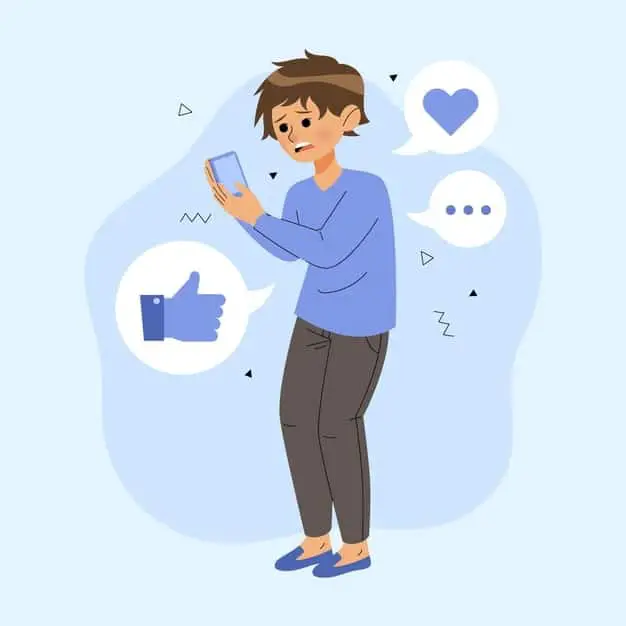
This indirect nature can create a sense of detachment and ambiguity and as Regis College states in an article on this topic, it often perpetuates even further into isolation. In other words, it deteriorates our social skills.
Direct Feedback In Person
In contrast, face-to-face interactions provide immediate and nuanced feedback, including verbal and non-verbal cues, tone of voice, and body language, offering a richer understanding of others’ reactions.
The absence of these cues in online interactions can lead to misunderstandings, misinterpretations, and a potential distortion of the intended message.
Social Media’s Effect on Our Social Perception
“People Go Along With What They Think The Majority Believes”
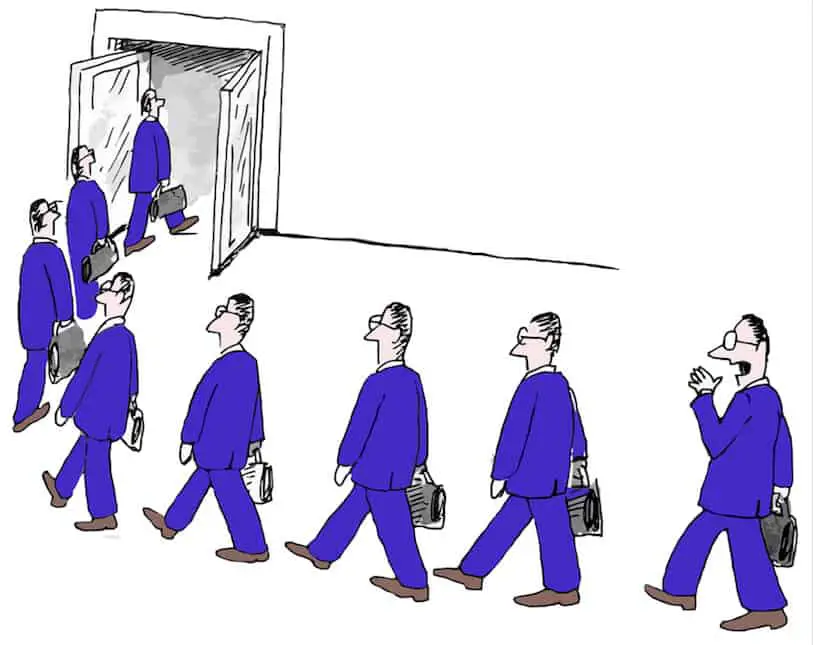
On social media, people often conform to what they perceive as the majority opinion, succumbing to the influence of the crowd.
The online environment can create a sense of uncertainty and insecurity due to the constant exposure to diverse opinions, social comparisons, and the fear of judgment.
The fear of standing alone or being criticized pushes individuals to align with the perceived majority, even if it goes against their own beliefs or critical thinking.
Social Media Distorts Our Perception of Time
Social media has the tendency to remove us from the present moment, diverting our attention towards virtual connections and online experiences.
As noted by neuroscientist Daniel J. Levitin: “Our attention is drawn away from the here-and-now by the many distractions and temptations that social media provides.”
By constantly seeking validation, updates, and virtual interactions, we become disconnected from the immediate surroundings and authentic experiences, leading to a diminished ability to fully engage with the present moment and those around us.
Does Social Media Actually Reflect Reality? Social Media Vs. Reality
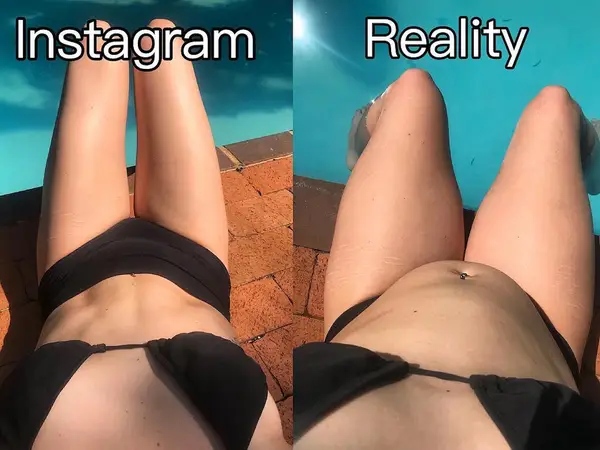
Scientific findings underscore a disconnect between the reality experienced on social platforms and our tangible world.
As explained by social psychologist Jonathan Haidt, “Social media spawns a world that, while seemingly paramount, is riddled with perpetual distractions, superficial relationships, and divided attention.”
The curated essence of social content, coupled with the innate restrictions of virtual interaction, preclude a faithful depiction of physical reality.
Such a discrepancy can skew our worldview, obstruct authentic connections, and inhibit our capacity to wholeheartedly participate in the concrete experiences and relationships in our immediate environment.
Final Thoughts: The Social Media Illusion vs Tangible Reality
From our exploration, it’s clear that social media significantly skews our worldview.
In the eyes of author Richard Power, “Social media crafts a parallel cosmos, altering our grasp of reality.”
The meticulously selected and polished content, widespread culture of comparison, and rampant misinformation all contribute to this skewed perception of our world.
It’s imperative to critically assess the information we stumble upon, pursue genuine relationships outside the digital sphere, and consistently remind ourselves of the stark divergence between the social media landscape and the palpable reality we reside in.
Here’s 38 Tips To Help You Use Social Media More Consciously
Loved what you read?
Hit that share button and let the world in on the secret – we’d be thrilled!
Got thoughts? We’re all ears for your feedback, corrections, or a good old chat. Don’t be shy; drop us a line.
And hey, don’t miss out on our curated list of must-reads in the recommended books section.
Big thanks for diving in with us today!







